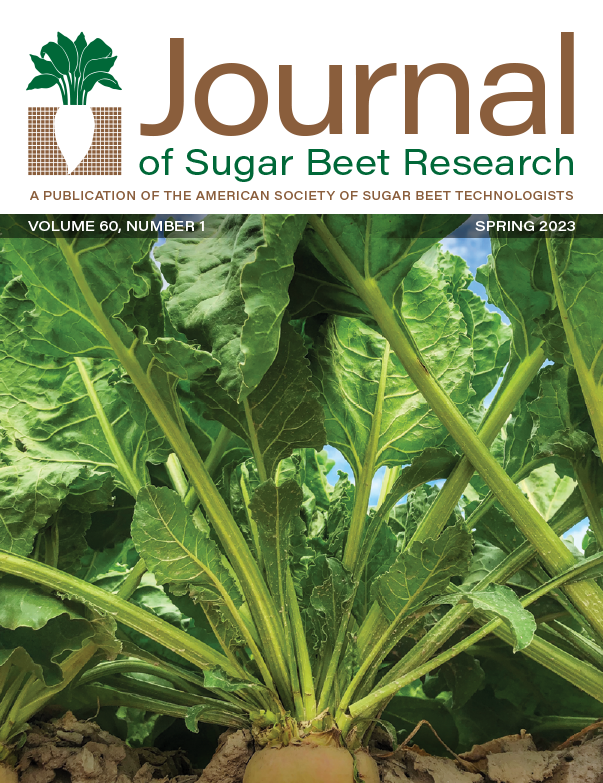Abstract
Rinskor active (flopyrauxifen- benzyl) belongs to the arylpicolinate class of chemistry, a new structural class of the synthetic auxin (Group 4) herbicides. Rinskor is currently registered as Loyant® herbicide in the US for use in rice where it has broad spectrum activity on grasses, broadleaves, and sedges. Rinskor has a low use rate (<30 g ai/ha), a favorable environmental and toxicology profile, rapid degradation in the soil and plant tissue, and little persistence in the environment. Due to its favorable profile, Rinskor received a “reduced-risk” review from EPA and a residue tolerance exemption in October 2019. Corteva is exploring potential opportunities to expand Rinskor into other crops including sugar beet. In Europe, Rinskor has been evaluated on sugar beet as part of a POST program where 3-4 POST applications are made in sugar beet. Results indicate that sugar beet has acceptable tolerance to Rinskor when applied from cotyledon to 6 leaves and that Rinskor provides good control of weeds in the Chenopodiacea, Apiaceae or Umbellifera families. In the United States, sugar beet growers can use glyphosate, a valuable tool in managing weeds on glyphosate-tolerant sugar beet. However, glyphosate resistance has continued to spread and additional weed control options in sugar beet are limited. Previous work has indicated that Rinskor provides excellent control of difficult-to-control weeds such as common lambsquarters (Chenopodium album) and other broadleaf weed species. In 2021, two trials were conducted in ND/MN utilizing Rinskor in sugar beet to evaluate crop tolerance and control of glyphosate-resistant waterhemp (Amaranthus tuberculatus). Initial results from this work indicated that 0.5-1.0 g ai/ha of Rinskor applied prior to 10-leaf sugar beet as the potential target rate range and application timing. In 2022, several trials were conducted throughout the sugar beet growing regions of the US. Rinskor applied alone caused visible crop response to sugar beet and the addition of glyphosate, ethofumesate, and s-metolachlor increased crop response. Two applications of a program treatment including Rinskor provided good to excellent control of common lambsquarters, waterhemp, Palmer amaranth (Amaranthus palmeri), kochia (Kochia scoparia), and common ragweed (Ambrosia artemiisifolia). Future work in the United States will continue to define the use rate and program treatments required to manage weeds with Rinskor in sugar beet.

